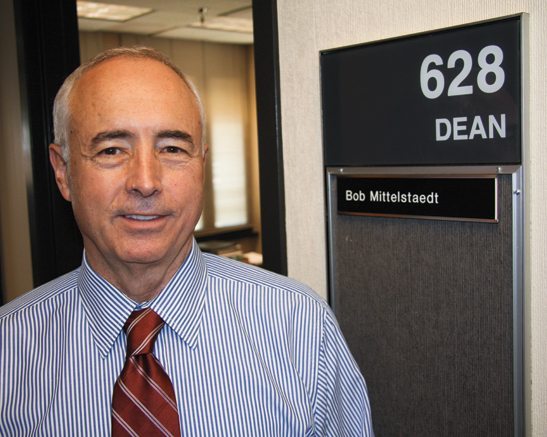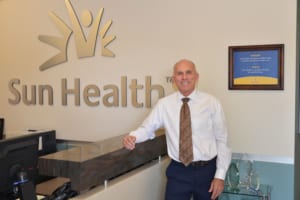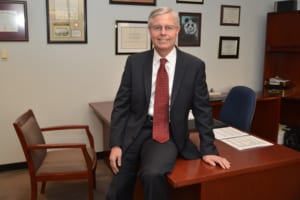Robert E. Mittelstaedt Jr.
Dean, W.P. Carey School of Business at Arizona State University
How is W.P. Carey’s curriculum changing due to the economic crisis?
The curriculum in any business school has to involve some fundamental, timeless subjects that never change. So accounting and some aspects of finance and people management and other things will go on forever, but in every case we have to find a way to adapt to the changes in the external environment, whether it’s societal or specific kinds of business issues. I think that most business schools now are re-thinking seriously their curriculums in light of what has happened in the last couple of years, in particular issues in the areas of risk management, ethics in decision making and globalization … It doesn’t mean that the entire curriculum will change, but we have to find a way to weave those things more into almost everything we teach.
Could business schools have done more to create an ethical climate among corporate executives that could have averted this crisis? Does that argument have any merit?
My experience over many years now tells me that parents have to do more to teach ethical values to their children, and society has to take responsibility for holding people accountable for ethical behavior. Sadly, I have found that in most people, when they cross ethical lines, you find out it’s not the first time and they started doing it early in their life. By the time we get them as undergraduate business students, that’s about the end of the time when you can influence it.
We push hard on ethics from day one, and the students who come into our program hear about ethics on day one from me, and throughout the time that they’re here and they are required to take ethics courses. … This is something that’s a broad societal problem that we have to deal with, and we’re are doing as much as we can in business schools and will continue to put even more emphasis on it, but it’s not something that can be solved just in a business school or just in a university alone.
What are some of the future trends you see for business schools?
I expect to see all business schools more concerned with some of the things that we have been thinking about here at ASU. For instance, whether you believe in global warming or not, it is indisputable that we have to worry about sustainability, simply because of the number of people on the planet. … There are all sorts of things that become different issues where we have society and business interacting, whether we like it or not, in a much more integrated fashion than we have had in the past. … Issues of instant communications, doing business differently than our predecessors did, are very real and have to be part of a curriculum. … All those things find their way into a curriculum, both in terms of changing the way we teach, the kinds of things we teach, the impact they have on individuals.
How would you assess the relationship between W.P. Carey and the Valley business community?
I believe that our relationship with the business community at the W.P. Carey School is quite strong. We have many business leaders that are on our advisory councils, advisory boards to departments, to the whole school; we have many businesses that support us by sending students here to work on their MBAs or even their undergraduate degrees. And we have many business leaders who are not graduates of our school but who believe we have to have a strong business school to help Phoenix grow, and so they support us.
Describe the education industry in Arizona in terms of employment.
Education is a big sector of our society and I don’t believe there are very many people today that would deny that education needs to be there. … (T)here’s more to learn today and a child today needs to learn more and get to a higher level of knowledge just to be competitive in the work force than they did a generation or two generations or three generations ago. You have to have an education sector that is strong and employs a fair number of people if you’re going to be competitive.The fact that we have gone through a financial crisis and budget cutbacks and furloughs and layoffs means that it’s not different than any other business, and it is in fact a business. It may be state supported, partially in the case of our university, but it is nonetheless a business that is subject to the same kinds of economic whipsaws as other sectors. The difference here is that our students don’t just go away because the economy got worse. In a retail establishment the customers may not show up and you may not have to have as many (establishments) open. We still have 52,000 students showing up on this campus in the fall …
-
Vital Stats
- Dean at W.P. Carey since 2004.
- Between 1973 and 2004, he served in numerous leadership positions at The Wharton School at the University of Pennsylvania.
- Author of “Will Your Next Mistake Be Fatal? Avoiding the Mistake Chain That Can Destroy Your Organization.”
- Earned his bachelor’s degree in mechanical engineering from Tulane University.
- Served five years as a U.S. Naval officer.
- Received an MBA from the Wharton School.
- wpcarey.asu.edu




